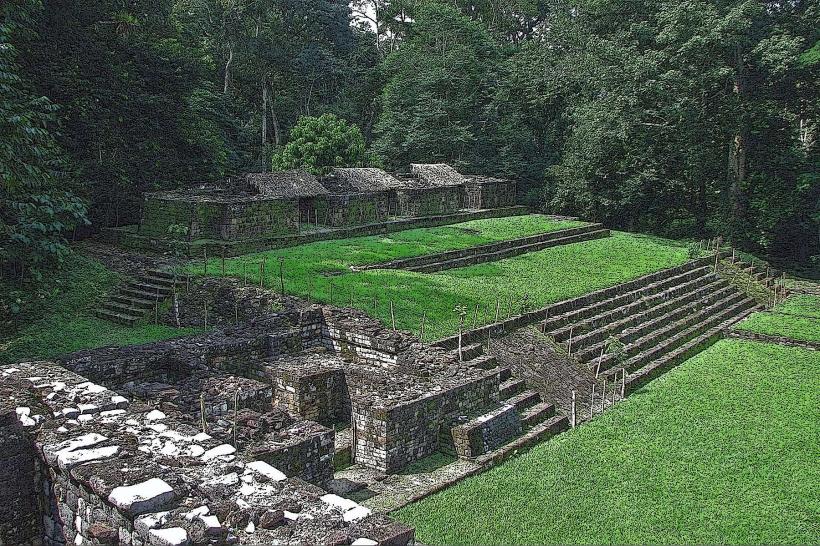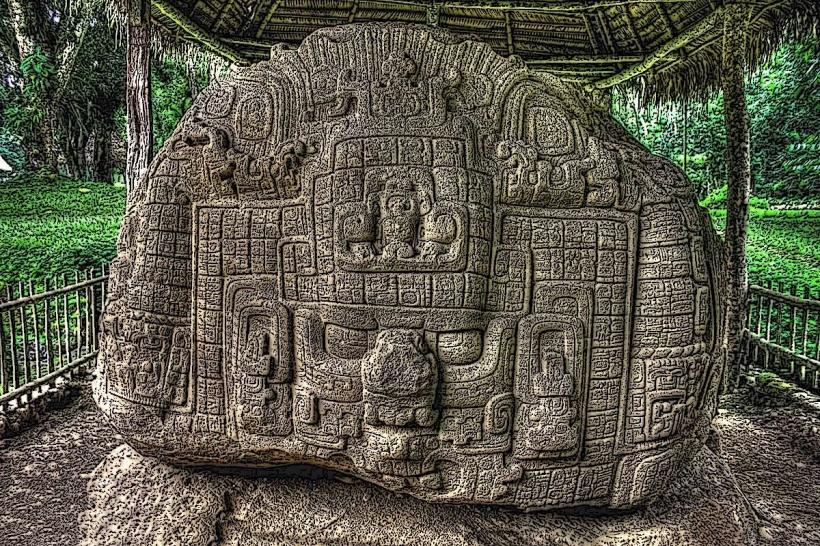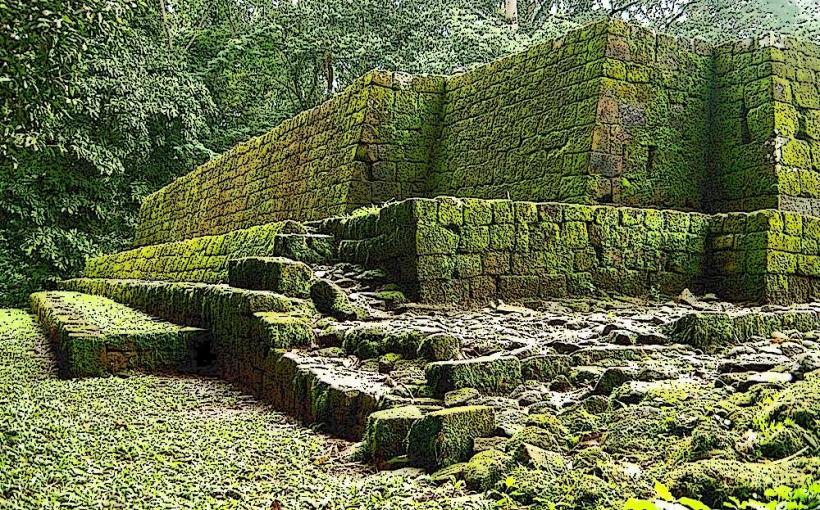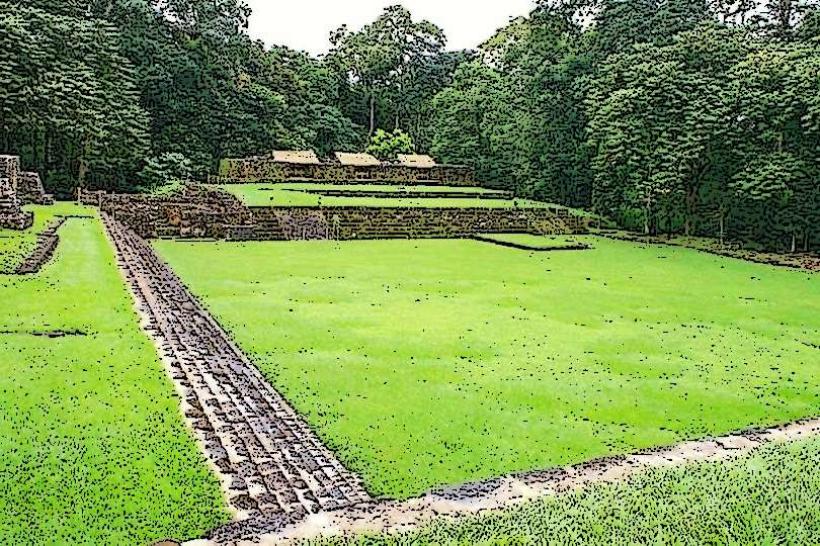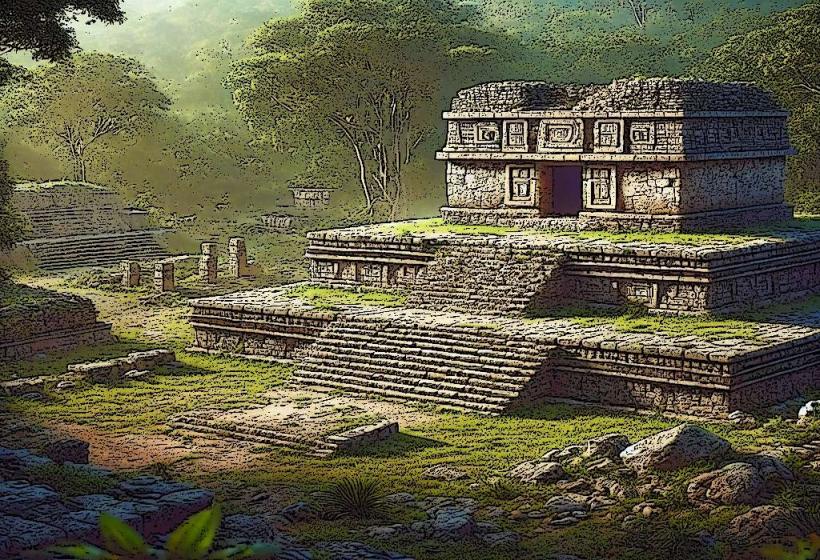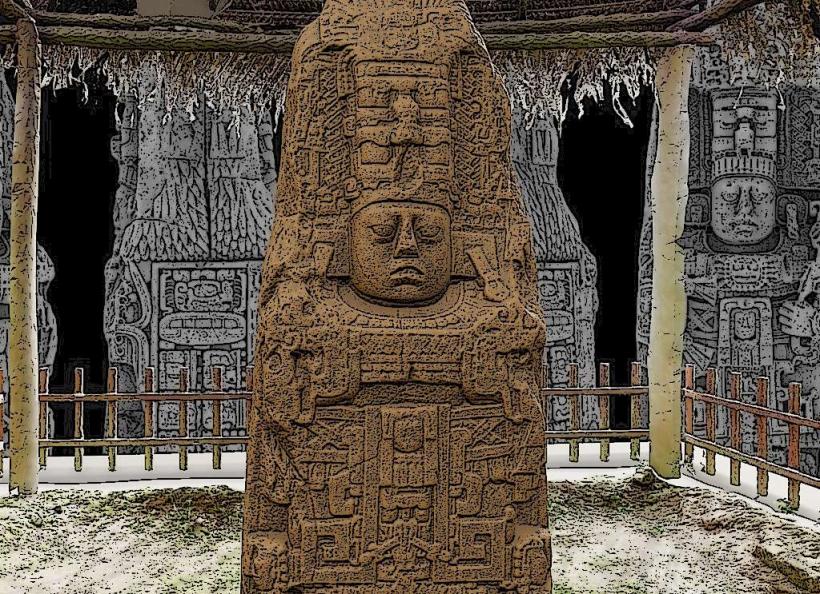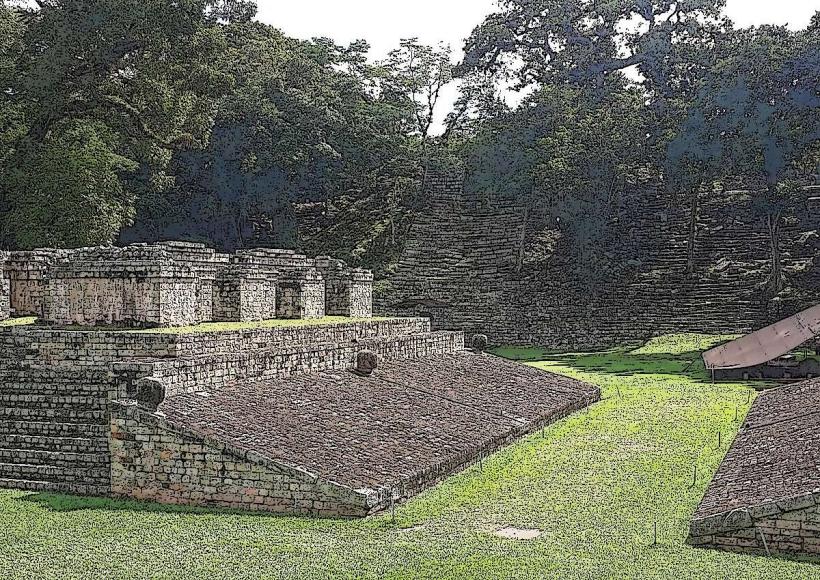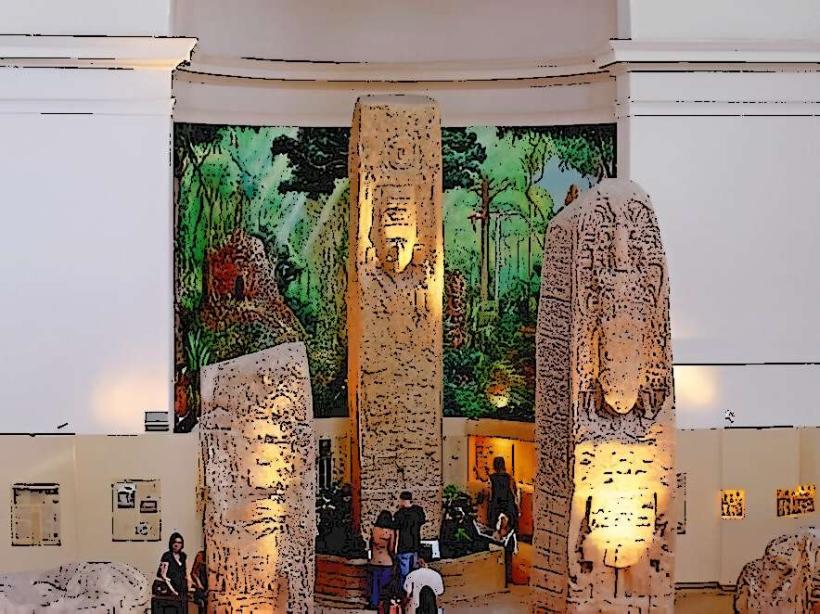Information
Landmark: Temple 22City: Quirigua
Country: Guatemala
Continent: North America
Temple 22 at Quiriguá is one of the important architectural features of the ancient Maya city. It is part of the Acropolis complex and is believed to have had significant religious and ceremonial functions. Although much of the temple has been eroded over time, it is still an important part of the site’s history and understanding of Maya architecture.
Location and Layout
Temple 22 is located near the Plaza Principal in the central part of Quiriguá, within the broader Acropolis area. This elevated temple would have been an important structure within the ceremonial core of the city. As with many Maya temples, it was likely built atop a platform or raised foundation, elevating it above the surrounding structures and emphasizing its importance.
Architectural Features
While the exact details of the architecture of Temple 22 are not fully preserved, it is thought to have been a small, single-room structure, typical of many Maya temples. These temples usually had a steeply pitched roof with a false ceiling that would have been decorated with religious symbols or carvings. The temple would have been constructed using limestone and other locally available materials, similar to other structures in Quiriguá.
The temple’s platform would have been used for ritualistic ceremonies, possibly involving offerings to the gods, sacrifices, or important royal functions. The alignment of the temple in relation to the surrounding monuments and stelae suggests that its location was chosen with careful attention to cosmological and astronomical factors, which was common in Maya architecture.
Function and Significance
Temple 22 would have had a significant religious and ceremonial function within the city. The presence of other ceremonial structures like stelae and altars nearby indicates that this area of Quiriguá was a place for high-ranking individuals, such as the ruler and priests, to perform important rituals. The Maya often believed that temples were the earthly homes of the gods, and the rituals performed there were vital for maintaining cosmic order.
Given the surrounding monuments, Temple 22 was likely used in connection with key events such as:
- Royal Ceremonies: The ascension of new rulers, important anniversaries, or military triumphs may have been marked by ceremonies held at the temple.
- Religious Rituals: Offerings and sacrifices would have been made in honor of the gods to ensure fertility, prosperity, and the well-being of the community.
- Astronomical Observations: Like many Maya temples, Temple 22 may have been aligned with celestial events, such as the movement of the sun, moon, or planets, which were highly significant in Maya cosmology and timekeeping.
Decline and Rediscovery
Like many of the structures at Quiriguá, Temple 22 fell into decline by the end of the 9th century, likely due to the abandonment of the city. Over time, the structure was eroded, and much of the architectural detail has been lost. However, the remains of the temple still offer valuable insights into Maya architectural practices and religious beliefs.
The temple was rediscovered in the 19th century, when the Quiriguá site was first explored by archaeologists. Today, it remains an important point of interest for visitors to the archaeological park, though much of its original form has been lost to time.
Conclusion
Temple 22 at Quiriguá is an important but partially lost structure that provides valuable insights into the religious and ceremonial life of the Maya. While much of the temple's architecture is no longer intact, it still holds significance within the broader context of Quiriguá's religious and political center, providing a link between the elite rulers, the gods, and the community. It is a key example of how Maya cities were designed to reflect both political power and spiritual beliefs, with temples like Temple 22 serving as important spaces for rituals that reinforced the connection between the human and divine worlds.

